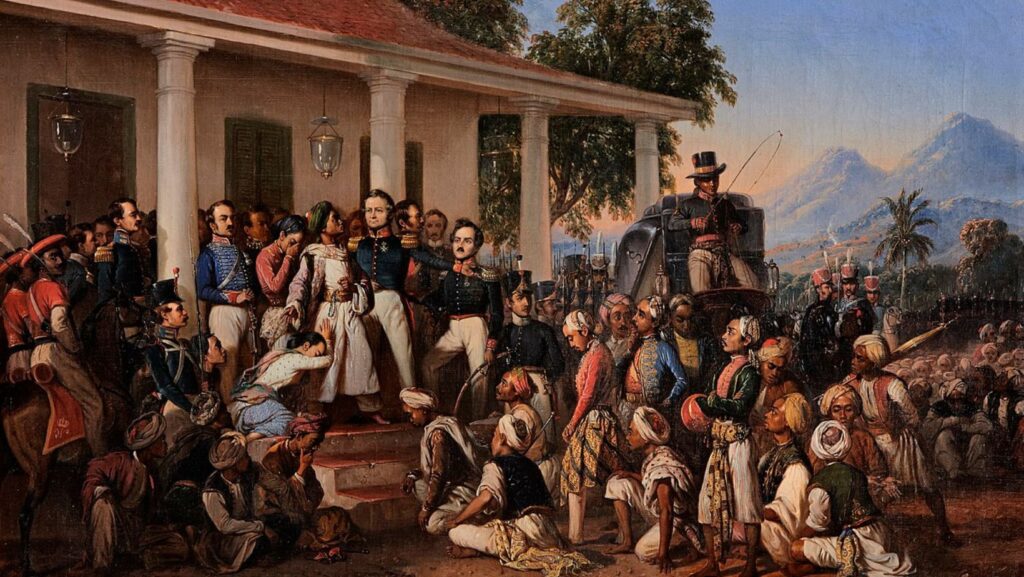The main cause of the Diponegoro War Penyebab Utama Pecahnya Perang Diponegoro Adalah isn’t a simple answer. It’s a tangle of political, economic, and cultural factors that came to a head in the early 19th century. Let’s dive into the heart of the matter and unravel the complexities behind this historical event.
Penyebab Utama Pecahnya Perang Diponegoro Adalah
Stepping back in time to early 19th-century Indonesia, we find a nation rife with political tension. Brewing under the surface, these tensions played a significant role in the onset of the Diponegoro War. It’s not an exaggeration to say politics was at the heart of this conflict.
The Dutch Colonization was a significant political factor. The Penyebab Utama Pecahnya Perang Diponegoro Adalah Dutch East India Company had a stronghold on the Indonesian archipelago, exerting control and influence that was often met with resistance. From generous tax levies to forced labor – many locals weren’t happy. You can’t discuss the Diponegoro War without acknowledging the role of Dutch rule.
On the Dutch side, Governor-General Du Bus de Gisignies was instrumental in implementing the exploitative policies that sparked discontent among the natives. He spearheaded the system of forced labor and imposed high taxes, which fueled the fire of discontented Javanese peasantry, eventually forcing their hand into open revolt.
Political Factors Leading to the Outbreak of the Diponegoro War
At the same time, the Javanese Court politics brewed discontent. The people of Java felt their rulers had forsaken traditional Javanese values in favor of Dutch ones. Both Sultan Hamengkubuwono II of Yogyakarta and Paku Buwono IV of Surakarta, known proponents of Dutch interests, were viewed unfavorably. This perceived betrayal of cultural heritage fanned the flames of rebellion.
It’s vital to note the erosion of the traditional Penyebab Utama Pecahnya Perang Diponegoro Adalah agrarian economy in Java during this era. A shift towards a cash-crop economy to meet European demands for sugar, tea, and coffee replaced the subsistence farming the locals relied on. This shift not only threatened their livelihoods but also encroached on their cultural heritage.
Just ten years leading up to the war, forced labor had more than tripled, and tax collections had more than doubled. These pressures drove the Javanese inhabitants to the brink, making them more susceptible to rallying behind Prince Diponegoro’s cause.
Cultural Tensions and Their Role in Sparking the Conflict
Cultural friction escalated alongside the increasing economic tension under the Dutch East India Company’s rule. The forced Penyebab Utama Pecahnya Perang Diponegoro Adalah shift from traditional agriculture to a cash-crop economy not only threatened livelihoods but also posed a significant risk to local customs and heritage.
The Javanese held a deep spiritual connection to their land. It’s a bond that was nurtured over generations, with rituals, traditions, and agricultural Penyebab Utama Pecahnya Perang Diponegoro Adalah practices being an integral part of their culture. The Company’s policies disrupted this harmony, leading to a growing unrest among the Javanese population.
Reported instances of cultural disrespect and desecration amplified the tensions further. The Javanese reinspected their faith and traditional values to cope with the changing sociopolitical landscape. The Dutch indifference to these sentiments, paired with the relentless push for their economic agenda, resulted in estrangement between the two communities.
Key Players and Their Impact on the Diponegoro War
Diving deeper into the dynamics of the Penyebab Utama Pecahnya Perang Diponegoro Adalah, it’s vital to identify the key players and their significant impact on the course of the conflict. Inarguably, Prince Diponegoro himself was a major figure, wielding immense influence attributable to his charismatic leadership and spiritual authority.
Diponegoro’s charisma and religious clout enabled him to rally the Javanese masses, thus significantly shaping the trajectory of the war. Besides his own role, Diponegoro had supporters who played critical parts in perpetuating the anti-colonial sentiments driving the conflict.
Key among these was Kyai Mojo, a spiritual leader whose teachings inspired Javanese peasantry. He preached about independence and self-reliance, which fueled the desire among his followers to break away from Dutch rule.






More Stories
Using Behavioral Triggers to Deliver Hyper-Relevant Email Content
How Esports Teams and Sponsorships Impact Betting Odds
How AI is Changing the Gaming Industry